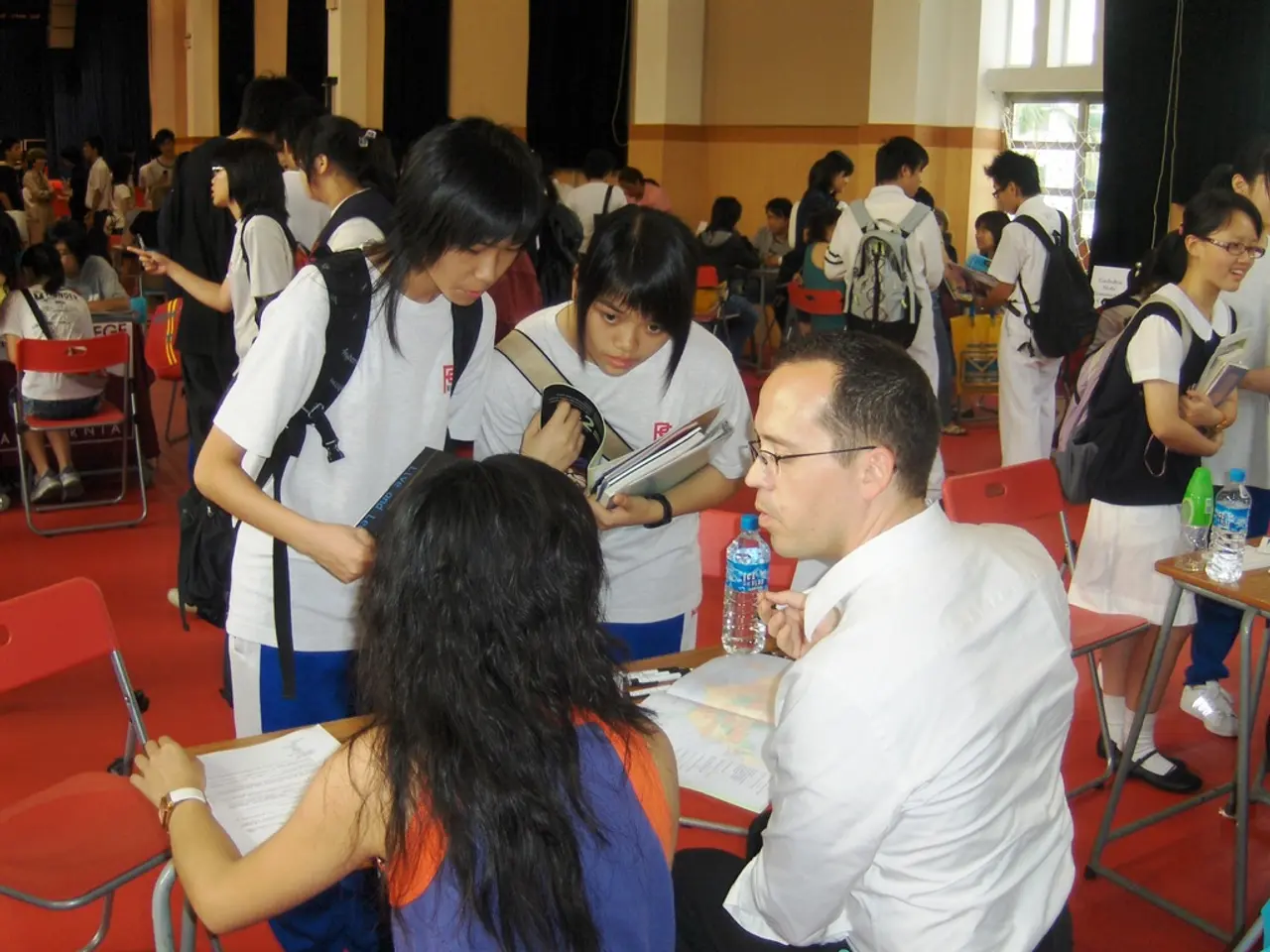Advocates for a broad Islamic educational system proposed by Sofuoglu
In an interview with the "Redaktionsnetzwerk Deutschland" (Wednesday edition), Gökay Sofuoglu, chairman of the Turkish Community in Germany, expressed support for the implementation of Islamic religious education in German schools. However, he acknowledged the challenges that come with this endeavour, particularly the lack of a nationwide Islamic cooperation partner.
The demand for Islamic religious education in German schools has been made by both the Turkish Community in Germany and the Association for Education and Education (VBE). According to Sofuoglu, education is a matter for the states, but the federal states are responsible for the implementation of Islamic religious education.
Currently, the status of implementing comprehensive Islamic religious education in German schools is fragmented and varies by federal state. Some states like Bavaria, Hesse, Saarland, Lower Saxony, and North Rhine-Westphalia have introduced Islamic religious education programs, often state-controlled and taught in German. However, there is no nationwide standardized Islamic education program due to the lack of a single, unified Islamic cooperation partner and the decentralized responsibility of the federal states for education.
One of the main challenges is the lack of a unified representative body for Islam in Germany. This results in disagreements among Sunni, Shiite, Turkish, and Arab groups, which complicates the establishment of a unified curriculum and cooperation with the state. Influence from foreign-affiliated Islamic organizations, such as DITIB with ties to the Turkish religious authority Diyanet, also raises concerns about the promotion of nationalist and non-European values within Islamic education.
Variability in quality and approach between states is another concern. Some regions rely on non-binding Islamic studies, while others have a complete absence of Islamic education. This leads to inconsistent educational offerings. Additionally, the risk of radicalization due to the absence of state-supervised Islamic education in some areas is a significant concern, as extremist ideologies can fill the void, especially online or in private family settings.
Sofuoglu called for a nationwide, systematic, and state-controlled Islamic religious education program that ensures adequate human and material resources, regular evaluation, and expansion of existing pilot projects. He also suggested that Islamic education should be implemented by state-certified teachers under supervision, with content aligned to fundamental societal values enshrined in Germany’s Basic Law, such as gender equality and individual freedoms, to counteract extremist influences.
Efforts to find or establish a common representative Islamic body accepted by the majority of Muslim communities in Germany to negotiate with federal states on curriculum and oversight are ongoing, although this remains unresolved. Some discussions have even considered replacing fragmented religious instruction models with unified ethical education in schools due to cultural and religious fragmentation.
In conclusion, the decentralized responsibility of education to federal states in Germany, combined with the absence of a nationwide recognized Islamic cooperation partner, poses significant obstacles to comprehensive Islamic religious education. Continuous pilot programs, federal support, and inter-community dialogue are needed to advance a cohesive, recognized, and state-aligned Islamic education model that supports integration and counters radicalization.
- The Association for Education and Self-Development and the Turkish Community in Germany, as well as the interviewed chairman Gökay Sofuoglu, advocate for a nationwide Islamic religious education program in German schools, but the lack of a unified Islamic cooperation partner complicates the process.
- Due to the lack of a single, unified Islamic cooperation partner and the decentralized responsibility of federal states for education, there is no standardized Islamic education program in Germany, leading to variability in quality and approach between states.




